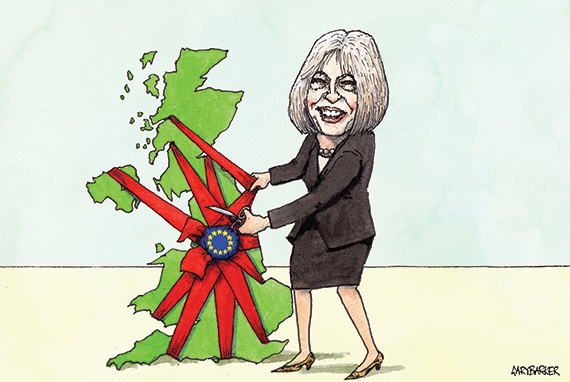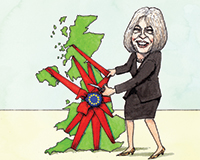 The result of the referendum was surprising, and yet perhaps the fall out since is less so – political uncertainty, speculation and market volatility are to be expected in a brave new world that few could plan for.
The result of the referendum was surprising, and yet perhaps the fall out since is less so – political uncertainty, speculation and market volatility are to be expected in a brave new world that few could plan for.
So what now? Discussions with clients and colleagues have highlighted two key points. First, we are in a better place now than we were during the global financial crisis and second, it is critical to ensure the UK remains a great place to live, work and invest.
The level of uncertainty surrounding Brexit is naturally unnerving. However, ‘another Lehman’ isn’t likely and while lending terms may worsen, banks won’t withdraw.
The level of systemic risk is much lower too, particularly with respect to real estate lending. We don’t have a wall of commercial mortgage-backed securities waiting to collapse. In fact, real estate leverage levels are low. Many of the listed REITs have loan-to-values of less than 45%, as well as substantial fire-power available to take advantage of buying opportunities. Even if there was a significant fall in valuations, this could be accommodated without triggering LTV covenants.
Many investors have locked into low interest rates, so those individuals can sit tight and deal with falls in income should vacancy increase.
While there has been much commentary about open-ended funds suspending trading, this is an entirely expected response to market volatility. It is also worth noting that regardless of the referendum, the property market peaked in 2015 and most likely would have levelled off in 2016 anyway.
Real estate is a key enabler of economic growth. Demand for property is driven by general economic activity, so it’s critical to ensure the UK remains an attractive place for talented people to live, for businesses to thrive, and an investment destination that competes for global capital.
With this in mind, I would like to see the government:
• Deregulate where possible. In the past 20 years, we have seen a significant increase in red tape. Some originated in the EU, but the UK itself has shown a willingness to implement more regulation than mandated in some areas. Deregulation would help us remain highly competitive.
• Clarify access to workforce. Ensure UK employers can access the workforce they need. As part of this, it is important to give clarity to the arrangements for existing EU employees of UK companies.
• Simplify and cut taxes. Announcements of further potential cuts in corporation tax are welcome, but the government could go further by simplifying the complex tax code system and look at other taxes beyond corporation tax.
• Avoid ‘easy win’ tax rises or regulatory changes. Property is a sitting target and therefore easy to tax. The UK has a hard-won reputation for not moving the goalposts for investors but this could fall away.
• Invest in essential infrastructure. The UK remains under-invested in infrastructure, and government has a clear role to lead the charge. This will create jobs and boost the economy, as well as demonstrate that we are open for business.
While there is a lot to do, in every challenge there is an opportunity and I hope we seize it as a country.
Andy Pyle is UK head of real estate, KPMG











